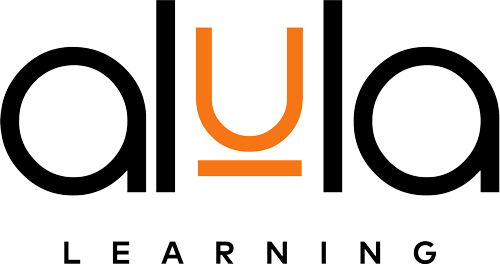
Continuous Learning Culture; Just as food sustains our bodies, knowledge and perpetual learning invigorate our minds. Lifelong learning is an indispensable asset for all professions and organizations, particularly in Learning Design, where it holds a central position.
Continuous learning is not just an option in this digital age it’s a necessity. For this reason, Alula Learning is organizing a training for learning design professionals and people who are looking to break into the learning design industry. By signing up for the Alula Training, you’ll gain access to cutting-edge methodologies and tools that are crucial for staying at the forefront of Learning Design today. More details on that in this post.
The Significance of a Continuous Learning Culture in Learning Design
In today’s world, continuous learning is crucial for nurturing critical thinking and cultural awareness. For learning designers, it’s essential to keep abreast of the latest educational theories, technologies, and methods. A life devoid of ongoing learning is unimaginable, especially in a field devoted to cultivating knowledge and growth in others.
“The only thing that is constant is change.” – Heraclitus
Change is inevitable in careers, personal lives, communities, and organizations. Lifelong learning is a potent tool to navigate change effectively. For learning designers, this means constantly adapting to new educational technologies, evolving learner needs, and innovative teaching strategies.
The Alula Learning training plays a pivotal role in equipping learning designers with the latest educational theories and technologies. This program ensures you stay relevant and adaptable, ready to meet new challenges and opportunities in the field. Enroll now to keep your skills sharp and your career on track!
Defining Continuous Learning
Continuous learning is the proactive pursuit of knowledge and skills to enhance your abilities and create future opportunities. In Learning Design, it involves ongoing professional development to prevent stagnation and achieve your full potential as an educator and innovator.
7 Advantages of Lifelong Learning for Learning Designers
With knowledge now widely accessible, failing to take advantage of this can render one obsolete. Here are seven reasons why you should never cease learning, especially in Learning Design.
1. Maintain Relevance
Stay current with industry trends and continually update your skill set to remain valuable. In the fast-paced realms of technology and education, learning new concepts is vital for staying relevant.
2. Be Ready for the Unexpected
Lifelong learning equips you to handle unforeseen changes, such as shifts in educational standards or the sudden need for online learning platforms. By consistently learning, you’ll be better prepared to step out of your comfort zone and seize new opportunities.
3. Enhance Your Profile
Constant learning leads to continuous improvement and career advancement. This ongoing development can earn you recognition from colleagues and managers. As a learning designer, showcasing your commitment to learning can unlock advanced roles and innovative projects.
4. Confidence Through Competence
Acquiring new knowledge instills a sense of accomplishment, boosting your confidence in your abilities. This confidence allows you to tackle challenges and create more impactful learning experiences.
5. Spark New Ideas
Learning new skills opens up new opportunities and helps you find innovative solutions to problems. Creativity is essential in Learning Design, where fresh approaches can significantly enhance learner engagement and success.
6. Widen Your Perspective
Continuous learning broadens your mind and shifts your attitude by building on your existing knowledge. The more you learn, the better you become at seeing multiple sides of a situation, which is crucial in designing inclusive and effective learning experiences.
7. Inspire Others
Continuous learning isn’t solely about personal gain. It develops your leadership skills, enabling you to foster a culture of lifelong learning in others. As a learning designer, you have the power to inspire and motivate learners to pursue further education and personal growth.
Applying a Continuous Learning Culture in Your Daily Life
Incorporating continuous learning into your daily routine can transform your professional and personal life. Here are some practical steps to ensure you make the most of learning opportunities every day:
Set Learning Goals: Establish clear, achievable learning objectives for yourself. Whether it’s mastering a new software tool or understanding a complex theory, having goals will keep you focused and motivated.
Create a Learning Schedule: Dedicate specific times in your day or week for learning activities. Consistency is key to making lifelong learning a habit.
Use Learning Apps and Platforms: Utilize educational apps and platforms like Duolingo for languages, Khan Academy for various subjects, or LinkedIn Learning for professional skills.
Engage in Discussions: Join online forums, study groups, or professional networks to discuss new ideas and gain different perspectives. Engaging with others can deepen your understanding and spark new interests.
Practice Mindfulness and Reflection: Take time to reflect on what you’ve learned. Mindfulness practices can help consolidate new knowledge and provide insights into how it applies to your work and life.
How to Measure Your Learning Progress
Tracking your learning progress helps maintain motivation and ensures you’re moving towards your goals. Here’s how you can measure your progress:
Set Milestones: Break down your learning goals into smaller, manageable milestones. Celebrate reaching each milestone to keep yourself motivated.
Maintain a Learning Journal: Document your learning experiences, key takeaways, and any challenges you face. This practice helps track your progress and reflect on your growth.
Seek Feedback: Regularly ask for feedback from peers, mentors, or managers. Constructive feedback can guide your learning journey and highlight areas for improvement.
Test Your Knowledge: Take quizzes, write essays, or engage in practical exercises related to your learning topics. Testing your knowledge helps reinforce what you’ve learned and identify any gaps.
Leveraging Technology for Continuous Learning Culture
Technology offers numerous tools and resources to facilitate continuous learning. Here are some ways to leverage technology in your learning journey:
Online Courses and Webinars: Enroll in online courses or attend webinars on platforms like Coursera, Udemy, or edX to learn new skills and earn certifications.
Podcasts and Audiobooks: Listen to educational podcasts and audiobooks during your commute or workout to make the most of your time.
Interactive Learning Tools: Use interactive tools like simulations, games, and virtual reality to enhance your learning experience and make it more engaging.
Social Media and Online Communities: Follow thought leaders on social media and join professional communities on LinkedIn or Reddit to stay updated with the latest trends and discussions in your field.
The Future of Continuous Learning Culture
As the world continues to evolve, the importance of continuous learning will only increase. Future trends in continuous learning may include:
Artificial Intelligence and Machine Learning: AI-driven personalized learning experiences that adapt to individual needs and preferences.
Microlearning: Short, focused learning sessions that fit into busy schedules and provide quick, actionable insights.
Gamification: Using game-like elements in learning platforms to increase engagement and motivation.
Lifelong Learning Pathways: Structured learning paths that guide individuals through various stages of their careers, from entry-level to expert.
Continuous Learning Culture
Conclusion
In Learning Design, continuous learning is not a luxury but a necessity. Embracing lifelong learning allows you to stay relevant, adapt to changes, and inspire others. By signing up for the Alula Learning Training for Learning Designers you can achieve personal and professional growth. The training is designed to foster continuous professional development through its comprehensive curriculum. This program is not just about keeping up; it’s about leading and innovating in the field of Learning Design. Sign up today to start mastering the skills that will set you apart as an expert in the industry.
As you embark on your lifelong learning journey, remember that the pursuit of knowledge is a rewarding endeavor that will enrich your life and the lives of those you teach.
